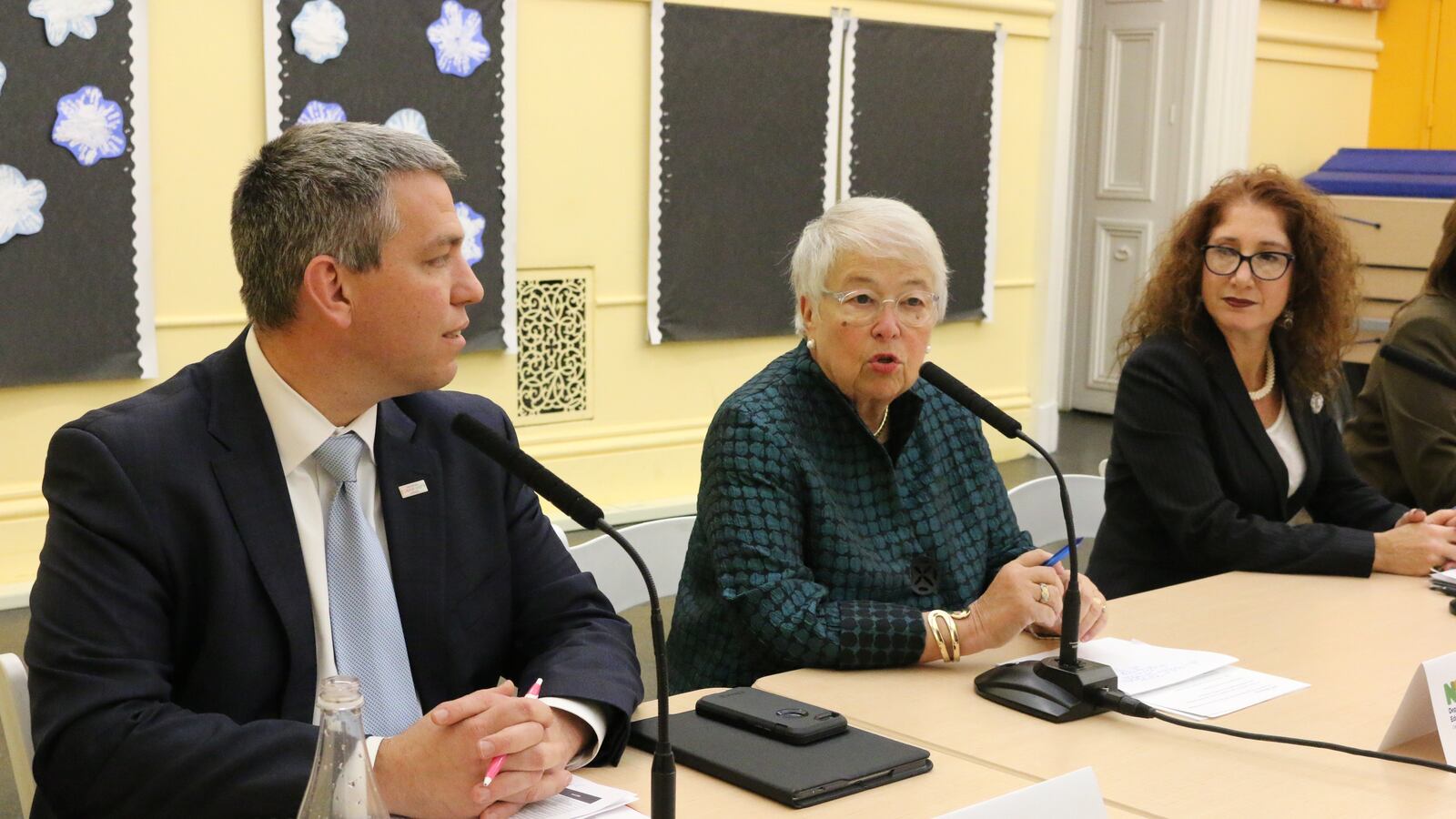For nearly 20 New York City schools, the news was grim on Monday morning: The city would be moving to close them, shrink them, or combine them with another school.
But for others, Monday’s announcement was a long-awaited boost. Twenty-one schools were named Rise schools, a new designation meant to indicate their progress under Mayor de Blasio’s School Renewal turnaround program.
Officials say that Rise schools will retain the extra social services that had been provided for students and their families, while other extra support will be reduced over time. The Rise program will operate independently, but stay connected to the Renewal one. And the Rise schools will be held accountable for continued improvement, but face less intense scrutiny.
It’s a middle ground that could help answer questions that have vexed the de Blasio administration since it unveiled the program in 2014 as a three-year intervention: What comes after year three? Specifically, can the city reward improvement by freeing the schools from intense oversight without undercutting their progress by pulling out support? And how can the city help schools it labeled as struggling to rebrand so they can attract new students?
“Rise schools are the Renewal schools that have been graduated and promoted,” Chancellor Fariña said Monday. “They will be moving into a different sphere.”
The Rise schools are in four boroughs and include schools like DreamYard Preparatory School in the Bronx, which is still struggling to push its graduation rate over 70 percent, and I.S. 528 Bea Fuller Rodgers School in Upper Manhattan, where fewer than one in five students passed the state math and English tests.
But overall, the city says the schools are on an upward climb, with proficiency rates on state English tests jumping an average of 15 percentage points and attendance rates jumping 4 points since the 2013-14 school year. (At the same time, however, the state made tests easier to pass and also made it easier to earn a diploma over the last three years.)
Aaron Pallas, a professor at Teachers College, called Rise a smart political move for Mayor Bill de Blasio.
“Graduating schools on the grounds that they were successful allows the mayor to declare victory,” he said.
Despite making gains, students at Rise schools fall below the city average on test scores. About 22 percent of students passed the state English exam and about 17 percent passed math. Citywide, those numbers are significantly higher, with a little over 40 percent passing English and just under 38 percent passing math. The graduation rate for Rise schools — which stands at almost 73 percent — is closer to the city’s projected average at 74 percent. (The city cautioned this number is preliminary and subject to change.)
The Rise program may allow the city to provide these schools — which still need help to maintain and further their gains — with extra support, while allowing them to shed the stigma of being in the city’s Renewal program. Even as the city showered these schools with millions of dollars over the last three years, convincing families to send their children to them was a challenge. Throughout the program, the schools struggled with enrollment, losing thousands of students.
Rise schools will remain “community schools,” a signature piece of de Blasio’s turnaround strategy in which schools are hubs for social and medical services. The schools will also enjoy an expedited roll-out of Equity and Excellence initiatives, including support for computer science, literacy, algebra, and Advanced Placement.
Principal Kyesha Jackson, who runs P.S. 67 in Brooklyn, said she is both excited to maintain the support provided by Renewal and lose the label. Under Renewal, she was able to purchase an online program that assess where students have learning gaps and provides access to lessons that target the area in which a student needs work. She also purchased an electronic literacy program that allows students access to 3,000 books, she said.
Those initiatives and others that she says were integral to improving her school will remain, but when families are researching the school, they will no longer see that it is designated as a struggling school.
“That stigma that a Renewal school is a failing school would be taken away,” she said.
Critics, including longtime de Blasio foe StudentsFirstNY, have pointed out the relatively low rates of students passing state tests at Rise schools.
But at least so far, principals remain hopeful that the new title — coupled with a high level of continuing support — will make a difference.
“We’re not yet where we want to be. But we really are a school on the rise,” said Miles Doyle, principal of Orchard Collegiate Academy in Manhattan at Monday’s press conference. “I welcome this new designation as a Rise school.”
Christina Veiga contributed reporting.

